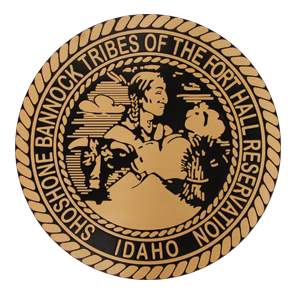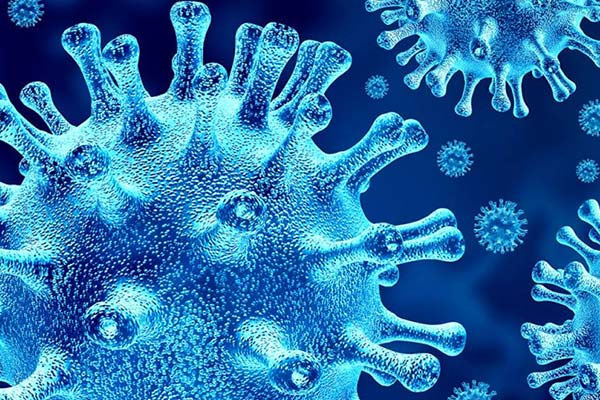SUMMARY:
The Fort Hall Business Council, following CDC guidelines, has established a new Quarantine for the COVID- 19. The COVID-19 is creating a significant health risk to the Fort Hall community. Under this new Quarantine policy, residents of the Fort Hall Reservations who:
1) Have tested positive for COVID-19, and/or
2) have been contacted by investigative health care agencies (Public Health District, Indian Health Service, or Tribal Health department) that been exposed to COVID-19
Are to be quarantined (separated from others who have not tested positive, or who have not been exposed to COVID-19) at their normal place of residence.
Those individuals shall remain in quarantine until they are medically released or do not show symptoms of the COVID-19 (fever, cough, or shortness of breath) for at least 72 hours. Health care personnel shall monitor the quarantined individuals.
Any non-member of the Tribe found in violation of the quarantine requirements shall be guilty of a civil infraction and fined, through Tribal Courts. The first violation will be subject to $250 fine, and a second violation will be subject to a $500 fine. Any subsequent violations will be subject to a $1000 fine. Any Shoshone-Bannock Tribal member found in violation of this quarantine shall forfeit their gaming per capita for one year. For any questions, please contact Eric King, Incident Commander of the COVID-19 Task Force of the Emergency Operations Center, at 208-237-0137, Monday through Friday, 8 am to 5 pm.
You can download the PDF document of Q&A by clicking the link below, or all questions and answers are also listed with this document.
QUESTIONS AND ANSWERS:
Q: Once a person is identified as in quarantine, who will be responsible to help that person with their daily medical and food needs? How will the Tribes help those quarantined individuals?
A: For the daily medical needs, IHS is offering curbside service Monday through Friday 8:00 am-5:00 pm, and family members can pick up medicines. Please contact IHS at 208-238-5485 for pharmacy refills. For food needs we are streamlining commodities 477, and Nutrition to provide a more effective way to feed our elders.
If needed, the Tribal Health Programs can deliver medication, food, cleaning supplies, and provide monitoring of the household with a COVID positive family member and those people during their 14 day isolation period.
Q: Who is helping them during their recovery?
A: Family or friends are encouraged to provide care for individuals who test positive but do not require hospitalization. We urge families to follow the medical advice provided upon confirmation of the coronavirus, with specific directions from their medical provider. Family members stay in the home to isolate and care for the positive COVID-19 patient.
Q. Will the Tribal health care programs provide monitoring of quarantined individuals? Tribes didn’t clarify what monitoring means?
A: Monitoring means the person will be contacted regarding an exposure to a person with positive COVID-19, educated on isolation for 14 days, during the 14-day isolation they will be contacted by phone to check for symptoms of illness. We have forms to document monitoring of each person who is either a COVID-19 patient and everyone named as a contact in the case.
Q: If a quarantined individual has family members living in the home, what precautions are necessary for family members? Is there any precautions for young children or elderly persons?
A: As for the family; they all isolate in the home but the Covid19 patient has to stay in a room all by self away from the family. The rest of the family must take measures to clean surfaces, wash hands and manage how they deal with dishes, towels and sharing the bathroom space. The patient must wear a mask when they leave the room to use the bathroom and clean up afterwards. No one should leave the house except to be outside in his or her own yard. Each of the members of the family will be monitored for symptoms for the 14 days. If the Covid19 family or patient has an alternative place with no one around for isolation that could be an alternative for staying away from the positive patient.
Q: Does the quarantine infractions apply only to the ones that have the virus?
A: It applies to those individuals who test positive, and those individuals who have been exposed to the coronavirus, as notified by a public health agency.
Q: If an individual is tested positive, why are they allowed to go home? Why aren’t they hospitalized?
A. Many people who test positive for COVID-19 are sent home to recover unless they have additional life threatening medical conditions, such as difficulty in breathing.
Q: How does the community know if they are positive or not? How does the community know if they are contagious?
A. Due to federal HIPPA laws, all individual health information is protected information, including the individual’s past, present or future physical or mental health or condition, and any information that identifies the individual or for which there is reasonable basis to believe it can be used to identify the individual. Limited information is provided to people who may have been exposed to a communicable disease by a health care agency, which will be provided directly to individuals, as a part of the tracing investigation for a confirmed case. In accordance with HIPPA laws, public health care agencies, including Indian Health Service and Tribal Health programs, will only release limited information on confirmed cases, by gender, general age, and county of residence.
Q: Is there a designated quarantine location for these individuals who test positive?
A. At this point, the Tribes require a person who tests positive, or have been notified by a health care agency that they have been exposed to an individual who tested positive for the coronavirus, are required to go into quarantine in their home.
Q: what is the difference between self-isolation and quarantine?
A: Isolation separates sick people with a contagious disease from people who are not sick. People who are in isolation should stay home. In the home, anyone sick should separate themselves from others by staying in a specific “sick” bedroom or space and using a different bathroom (if possible). Quarantine separates and restricts the movement of people who were exposed to a contagious disease to see if they become sick. These people may have been exposed to a disease and do not know it, or they may have the disease but do not show symptoms. Someone in quarantine stays separated from others, and they limit movement outside of their home or current place.
Q: What if I have concerns, but cannot find information about my specific situation?
A: Fort Hall Business Council is following the best practices established by the CDC, using the latest confirmed data, and responding to the crisis as situations change. We recognize that these guidelines are general and do not address each unique circumstance which will need to be dealt with on a case-to-case basis.
For further information, call Covid19 hot line @ 1-208-238-5494

